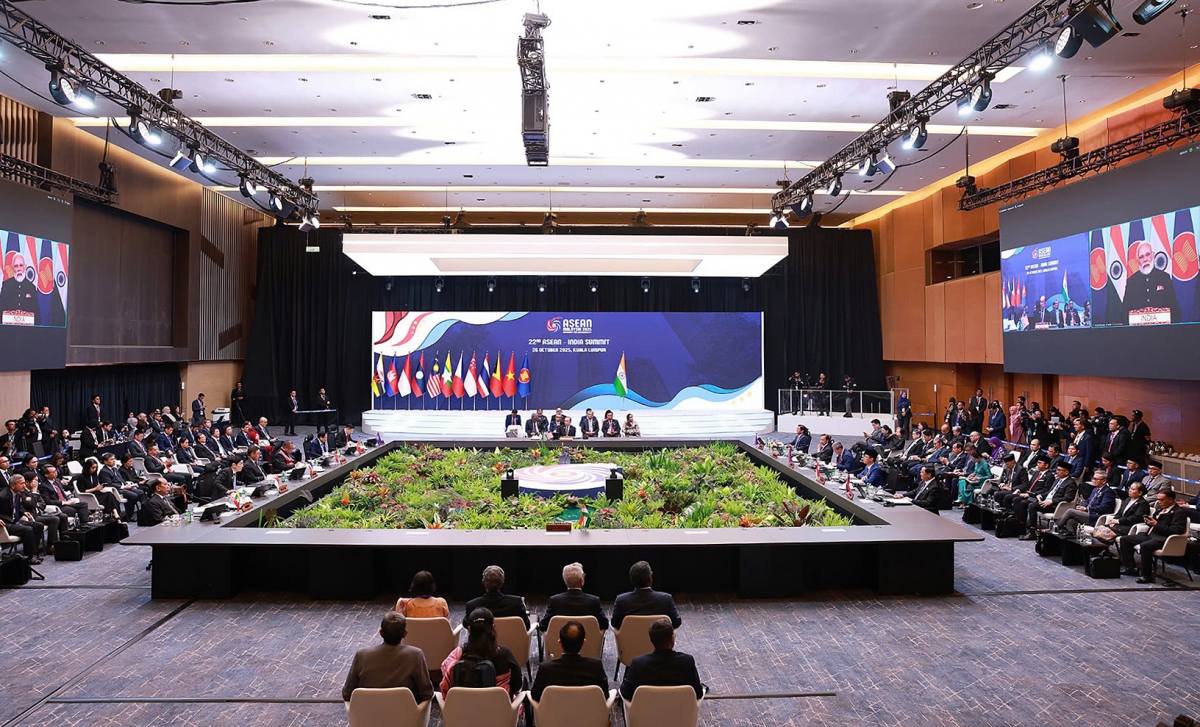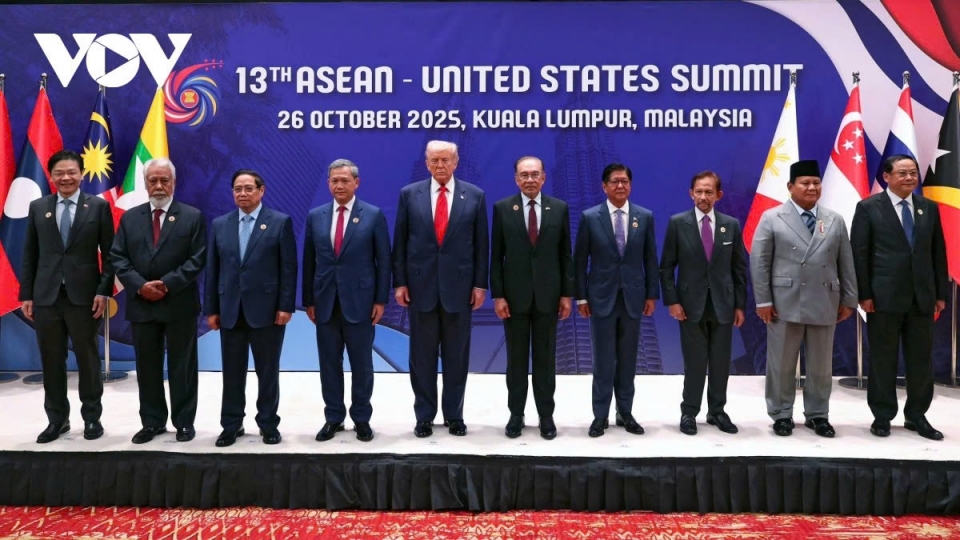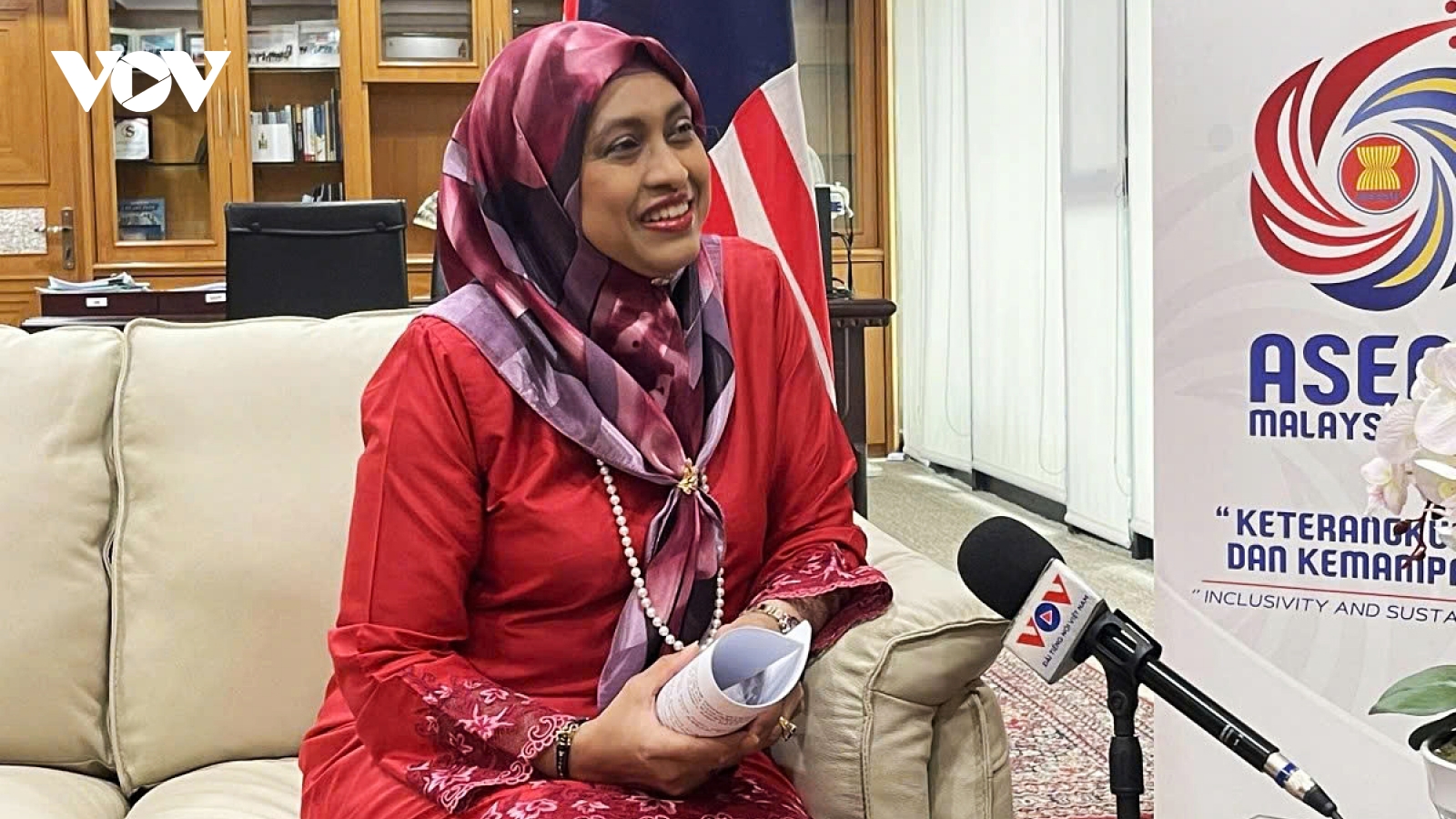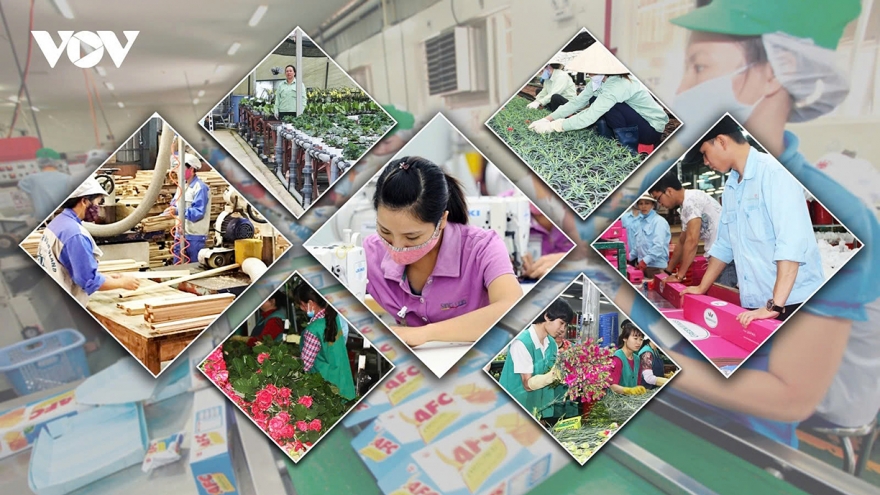ASEAN-India Summit sets strategic agenda for sustainable and inclusive cooperation
VOV.VN - Vietnamese Prime Minister Pham Minh Chinh highlighted India’s role in promoting regional cooperation and amplifying the voice of developing countries on the global agenda, at the 22nd ASEAN–India Summit held in Kuala Lumpur, Malaysia, on October 26.

Addressing the meeting, he reaffirmed Vietnam’s support for India’s “Act East” policy, encouraging stronger, substantive cooperation with ASEAN.
In the context of a rapidly changing global landscape, Prime Minister Chinh emphasised that ASEAN and India – two strategic anchors linking the Indian Ocean and the Pacific, with over 2 billion people and a combined GDP of nearly US$8 trillion – should leverage their influence to strengthen regional cooperation, multilateralism, and sustainable development.
To deepen the ASEAN–India Comprehensive Strategic Partnership, Prime Minister Pham proposed enhancing economic connectivity by promoting sustainable and inclusive development, leveraging comparative advantages, supporting SMEs, restructuring the ASEAN–India Business Council, and boosting investment in high-tech sectors, renewable energy, infrastructure, logistics, AI, and semiconductors. Cooperation in the Mekong–Ganga subregion will help narrow development gaps, he said.
The Vietnamese PM stressed the need to expand people-to-people exchanges, and strengthen education, healthcare, culture, tourism, and high-quality human resource development, including exchanges of scholars, students, and experts in smart agriculture, green technology, and food security.
He underscored the importance of promoting maritime cooperation by developing a sustainable blue economy, enhancing transport, marine science, and industry collaboration, while supporting ASEAN’s stance on the East Sea (known internationally as South China Sea), ensuring maritime security, freedom of navigation, and peaceful dispute resolution under the 1982 United Nations Convention on the Law of the Sea (UNCLOS).
The leaders praised the strong growth of the ASEAN–India partnership, noting India as ASEAN’s sixth-largest trading partner, with bilateral trade of US$106.83 billion in 2024 and FDI totaling US$3.58 billion. They agreed to expedite the review and upgrade of the ASEAN–India Trade in Goods Agreement (AITIGA) for greater efficiency and benefits to businesses.
The Summit approved the ASEAN–India Action Plan for 2026–2030, prioritising digital economy, innovation, clean energy, sustainable infrastructure, health care, education, food security, and narrowing development gaps.
India introduced new initiatives, including the ASEAN–India Digital Future Fund and a US$5 million contribution to support tourism cooperation in 2025, enhancing cultural and people-to-people ties.
ASEAN and India designated “ASEAN–India Maritime Cooperation” as the 2026 theme, focusing on maritime security, blue economy, marine science, transport connectivity, and joint exercises.
ASEAN leaders encouraged India to strengthen regional connectivity, including the India–Myanmar–Thailand economic corridor, extending to Laos, Cambodia, and Vietnam.
Indian Prime Minister Narendra Modi emphasised the historic, cultural, and strategic ties linking ASEAN and India, vowing to support ASEAN’s priorities on inclusivity, sustainable development, digital transformation, green economy, food security, and cross-border cooperation. He pledged to jointly realise the ASEAN Community Vision 2045 and India’s 2047 development goals.
The Summit concluded with the adoption of the joint declaration on sustainable tourism, reaffirming both sides’ determination to advance substantive, inclusive, and sustainable cooperation in the years ahead.





